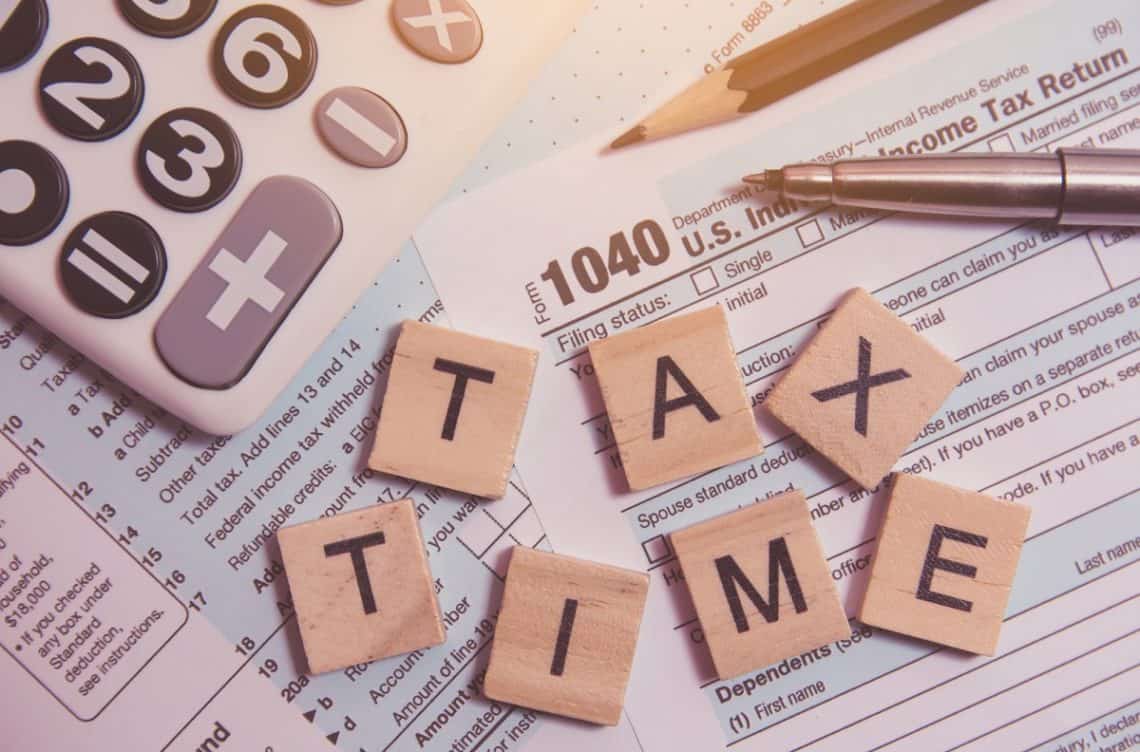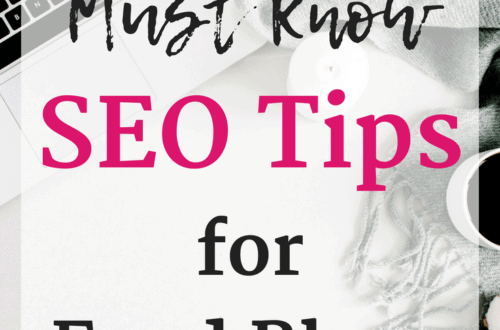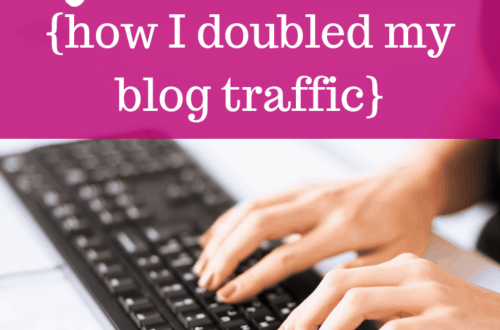
Taxes for Bloggers: An Accountant’s Guide!
As a blogger or influencer, it’s important to be aware of the tax laws that apply to you. Unfortunately, these rules can get a little confusing! Couple that with rampant misinformation in Facebook groups, and it can leave you feeling stumped about what you need to report or pay. That’s why we’ve brought in Wendy Karlon, CPA, to break down everything you need to know about taxes for bloggers!
From entity type to self-employment taxes to business deductions, let’s talk taxes….
Disclaimer: This post was written by Wendy Karlon, Certified Public Accountant (CPA). It is intended for informational purposes only and does not constitute individual financial advice. The information provided is relevant to those in the US and may be different in other countries. For any tax-related questions, reach out to Wendy or your accountant.

First – do you have business?
First, let’s determine if your activity is just a hobby or an actual business.
A hobby is considered doing something you love that you just happen to make some profit on. From a tax perspective, hobby income and expenses are considered passive and are limited to the income generated and the cost of goods sold (at least until 2026 under the adjusted tax code).
Businesses, on the other hand, offer an overall better tax advantage. For example, if your business has more expenses than income, it has a loss and business losses are fully deductible against personal income. The business would not have to pay any taxes for that loss year (though you still may have a personal tax obligation with other income from yourself or your spouse). (Sometimes, the loss can also be carried forward against future income.)
It’s important that as a blogger you establish whether you have a business or just a hobby. If you are unsure if you have a business or a hobby, this IRS list of questions will help you in your determination.
Here is a comparison to help shed light on the differences:
A casual painter creates a few canvases that she informally sells to friends for $600. The cost of supplies for paint, canvases, etc total $800. Since the painting is considered a hobby, only $600 in cost of goods sold can be deducted as it is limited to the income of $600 generated. The additional $200 is forfeited and not deductible. Cost of goods sold are items used in creating a product, such as a painting.
However, let’s say you are blogging as a business. You have $600 in income and $800 in expenses for the blog. You would end up claiming a $200 loss on your Schedule C, as the $800 is fully deductible as a business.
One quick note: Be careful though in claiming losses year after year. The IRS eventually will want to know if your business plans to achieve profitability and how long it will take to do so, because losses from the business lower an individual’s overall tax liability.
What type of entity is my business and how does that affect my taxes?
Most bloggers are likely to fall under sole proprietors or LLC entities.
A sole proprietor is a single member owned business (that has not filed for an LLC or corporation). It could have an employer identification number (EIN), but it is not required. As an accountant, I recommend most businesses file for an EIN, which is free through the IRS and can be obtained instantaneously.
Instead of a sole proprietorship, other bloggers may choose to set up limited liability corporations (LLCs). The biggest benefit of the LLC is providing a layer of separation between the business and the individual. For example, if the business was sued, the lawsuit would be limited to the assets of the business and personal assets would not be involved.
LLCs do require filing paperwork at the state level, paying a fee, and (almost all states) require an annual renewal fee as well. Some states are more expensive than others. However, it may be worth it to protect your personal assets. If you live in Massachusetts, you can find more information about filing an LLC here.
Since most LLCs are single member (one owner) businesses, the taxes for LLCs and sole proprietors are essentially the same. Both are filed on a separate schedule (Schedule C) as part of your individual tax return.
The benefit is that there is only one tax return necessary (even if you have multiple businesses). The downside, though, is that the business is taxed at the same rate as you as an individual, and could bring your tax bracket up significantly if combined with other income.
If your business is generating over $100k a year, it could be worth it to investigate electing to have your LLC taxed as an S-Corp, which can save you money on your tax obligations. There are rules and paperwork to follow for this, though, so make sure you seek advice from a tax advisor first.
Tax essentials for bloggers
When it comes to your business, you should always make it a priority to maintain good financial records.
How many of us have been too busy doing keyword research or pitching sponsors, but don’t spend the time to actively manage our business finances? Then you get to the end of the year and panic because taxes are going to be due in a few months and you have no idea what you may or may not owe.
A good rule of thumb is to always keep your business income and expenses separate from your personal finances. The best way to do this is to have separate bank accounts and credit cards that are under the name of the business. This makes it easy to track and even easier to import into software or to spreadsheets. Many credit cards offer benefits to the business as well, such as travel points, cash back, and interest free purchases.
The best way I’ve found to track your business holistically is QuickBooks Online. The software can be accessed from anywhere since it is in the cloud. You can assign accountants and bookkeepers access to QuickBooks for managing the books or entering transactions.
QuickBooks also offers an app that allows you to snap pictures of receipts and can track mileage that can be uploaded right into the software for tracking. The simple start package would be the right package for most bloggers (check QuickBooks site for current pricing). Once bank feeds, rules, and structure are set up to start, QuickBooks only requires a small amount of time each month to maintain good records.
If you choose not to use a software to track expenses, at a minimum you should enter income and expenses in a monthly spreadsheet. This will also give you an idea of how your business is performing.
Along with the spreadsheet, make sure you keep track of your receipts, either electronically or in paper form. Receipts are increasingly generated in digital form (think of all the subscriptions and tools you may pay for as a blogger), so make sure you have a good system to store them.
The IRS can audit your return for up to 7 years, so it is important that good records are retained that long.

Self-Employment and Estimated Taxes
Bloggers are considered self-employed when they work for themselves, as most do. This means you are not employed by another person or company that gives you a paycheck and deducts taxes automatically. (If you are a full time employed content writer at a company, note that this article doesn’t apply).
When you work at a company as an employee, your employer would deduct the employee taxes and match those amounts in what is called the employer tax. The employer would then send the two amounts together to the various agencies.
When you are self-employed, though, no one is monitoring those tax liabilities except for you or your accountant. Therefore, a self-employed person is required to pay self-employment taxes on the net earnings they make.
The key words here are net earnings. So, if you earn $200 for a post but had $200 in expenses to create that post, you’d have no earnings because the amount gained would net the amount spent. But if you earned $500 for the post and had $200 in expenses, you’d pay taxes on the $300 ($500-$200) in net earnings.
For 2022, the self-employment tax rate is 15.3%, which includes social security tax of 12.4% and 2.9% for Medicare tax.
Self-employment tax is softened by two deductions though. First, half the tax (7.65%) is deducted from the income which is calculated by multiplying 0.9235 by the net earnings. If you had net earnings of $50,000, it would be multiplied by 0.9235 and come out to $46.175.
One half of the self-employment tax is also deductible from gross income.
Going back to the employer example, the taxes are submitted from the employer to the tax agencies on a quarterly basis. Therefore, the agencies are always receiving the payments.
But if you are self-employed, there is no way for the agencies to know how much net earnings you are generating. After you file your business earnings for the first year, the IRS/state will typically calculate what you owe for that year and recommend an estimated tax schedule for the following year based on the net earnings you reported.
The IRS provides vouchers for you to submit those pre-payments throughout the year, or you can pay your estimated taxes directly on the IRS website.
If you don’t have those vouchers or don’t know how much to pay in estimated taxes, you can work with an accountant to help determine the number. (Or, you can estimate your net earnings for the upcoming year, divide that by four, and use that as a starting point for your quarterly payment.)
If you don’t send the IRS the estimates and you owe more than $1,000 in taxes when you file annually, they will charge you a penalty when you file your annual taxes. The penalty depends on what is owed. It is typically a couple hundred dollars.
Deductible Expenses for Bloggers
It is important when you are in business to know which expenses are tax deductible, which reduces your overall tax owed, versus expenses that may not be allowed. Always consult with your accountant to make sure before filing taxes.
Here is a list of some of the basic expenses that are considered deductible:
- Advertising
- Accountants and legal fees
- Contractors paid for posts or other jobs
- Images purchased
- Hardware (computers, webcams, microphones, etc.)
- Software/website fees
- Office supplies
- Rental space
- Job training
- Books
- Subscriptions
- Dedicated home office space
- Mileage to clients
- Other client or training travel expenses
Some things that are not considered deductible might be:
- Gifts given over a $25 value
- Meals not taken with a client
- Personal vehicle use
The general rule of thumb is that if it is an expense for your profession, it is probably deductible. For instance, a food blogger would be able to deduct the food and reasonable equipment purchased to create a recipe for a blog post.
Qualified Business Income (QBI)
Businesses are also allowed to deduct one other business expense called the Qualified Business Income (QBI). It allows businesses to deduct 20% of the net profit, after the deductions above, before computing the tax owed. A single filer in 2022 can have total taxable income up to $170,500 and still qualify for the deduction. Levels above that may still qualify but at a lower percentage rate.
Tax FAQs for Bloggers
Here are some additional questions that bloggers frequently have – hopefully the answers are helpful!
If a blogger is not receiving a paycheck from an employer but is earning income from a source, they are still considered self-employed even if they do not officially declare themselves a business.
Anything over $400 in net earnings needs to be declared as self-employment income.
The IRS still expects you to declare your income earned even if you did not receive a 1099 form. (In general, it is good practice to request a 1099 if you did not receive one that you should have received, but you can still properly fulfill your obligations without one by declaring that income).
No. If you are selling services/goods, you can claim expenses against the income to reduce your tax liability. Note though that not all expenses are tax deductible. Refer to deductible expenses above.
Any gifts received over a $25 value is considered taxable and should be reported.
The Bottom Line
Taxes can be confusing for anyone, but they can be especially tricky for bloggers and other influencers. It’s important to have a basic understanding of the tax laws that apply to you. It’s also important to secure a good accountant to help with both tax planning and filing.
About The Author + Get Tax Help!

Wendy Karlon, CPA, owns CPN Small Business Accounting Solutions, located in Bolton, MA. CPN’s goal is to empower small woman-owned businesses to understand their finances and profitability so they can focus on doing what they love. After being in corporate for several years, she didn’t always see other woman being given the support or tools to succeed and her goal is to change that. Knowing your numbers and where you are profitable is the key to having confidence to grow your business.
Wendy is a mom of 3 busy boys. She is a bookkeeper for the local school Parents Advisory Committee and a member on the Board of Health.
CPN accounting has two offerings for woman-owned businesses, a Visibility or a Growth Package, that will help you set up your business finances for success and profitability and would be happy to talk with you about getting your finances in order. Annual tax filing services are also available. Free consultation calls can be set up on her website at cpnaccounting.com .
Feel free to pin this post to save for later!






One Comment
Lynn
Hi Chrissy,
I love your website/content and all the wonderful information you provide. I’m a fairly new blogger and have just started to add Affiliate Marketing to my blog. I love your article on taxes, but I was wondering if you have this info in a PDF format so I could print it up for future reference.
Thank you so much,
Lynn